I THINK we done it, I think we done it,” said Tadhg Moynihan to Eric McNamara after Real Steel flashed by the post, at the tip of the 30-runner field in the Paddy Power Chase.
McNamara thought they had done it as well. Two seconds before being embraced by Moynihan, he punched the air. When you’re in the game as long as he has been, you know when the head bobs your way.
But then he started to doubt himself. You see, it’s different when you’re in a photo finish for one of the biggest handicaps of the year with a horse you sourced yourself for a risky fee and with your own son riding him.
“I genuinely thought he had won at first,” McNamara reflected this week. “But when people were coming up congratulating us, I just got worried. I was just thinking, this could go horribly wrong.
“I still thought we’d won but the cameraman panned to the second horse, and then back to us, and then to him again. It was strange the way it worked out and you start to wonder.”
Result of the photo finish: First, number 27.
Relief. Satisfaction. Pride. These are the days that make it all worthwhile.
Listowel
The Real Steel story for McNamara started on the steps of Listowel’s main stand. A few years ago, he stood there with Moynihan watching the Kerry National. As they made their way down the steps, Moynihan said to him that he’d love to win the race they had just watched. McNamara told him to leave it with him.
Fast forward to last May, at the Goffs UK Spring Sale at Doncaster, where McNamara purchased Real Steel for £27,000. It was £2,000 above his budget but he was delighted to get the horse.
“He just fitted the bill for what we were after,” he recalls. “I wanted to see if it was possible to source a horse for the Kerry National so we were looking for a horse with a minimum rating of 130, or even 135.
“He was 130 but he ticked a lot of the boxes from the point of view that he was a very good horse who had lost his way and had dropped in the handicap. He was a horse I’d followed throughout his career and I was astonished with how badly he fared in England.
“We were hoping that maybe we could bring him home, start him off fresh and rekindle him, do you know. That’s kind of what happened really. We got him back, got him out on grass, I called Tadhg and he was in straight away.”
Most jumps fans will have followed Real Steel. Trained by Willie Mullins, he bolted up in the valuable novice handicap chase at the 2019 Punchestown Festival before scoring two Grade 2 wins in his first year in open company.
He pulled up on his last run before the Cheltenham Festival but then remarkably appeared to be travelling best of all turning for home in the Gold Cup, trading odds-on in the run, before fading into sixth. That took his rating to 166 but during the pit of the pandemic he was moved from Mullins’s yard to Paul Nicholls, and there began a rancid run of form, which saw him tumble down the ratings.
Every horse is a gamble but buying a nine-year-old who hadn’t run well in over two years for a trainer as good as Paul Nicholls, was in many ways, a brave move.

“Yeah you could say that but if we don’t have confidence in ourselves, we have nothing,” McNamara says. “This is how we’ve sourced horses in the last few years. I’ve been going to the Land Rover and Derby Sales, and drove back down the road with nothing for a few years now.
“The likes of me giving 30-35 grand for a three-year-old unbroken, it’s not feasible. In any case, you’re waiting so long for that type of horse and most of them are no good unfortunately.
“We bought three in Doncaster: Real Steel, Falco Blitz and Mont St Vincent. Falco Blitz was fourth in the Tim Duggan last week and Mont St Vincent finished second at Tipperary. They’ve both gone the right way.”
As it happened Real Steel didn’t get into the Kerry National but he’d run a promising race later in the week at Listowel and then finished second in a good handicap chase at Galway.
“When we got him, we gave him six months on grass, just to reset him. We took things easy with him. We always worked him with horses he was superior to, so that he felt like he was king of the castle. Mentally, we did different things with him. We rode him out the road often and just used basic little things to keep him as happy as possible.
“From Listowel to Galway, he picked up a lot and in his last three pieces of work before Leopardstown, you could really see he had turned a corner. I felt that we kind of had him back to somewhere near where he was. Not back to where Willie Mullins had him but I sensed that we had him as right as we could have had him.
“We had Donkey Years in the race as well (unseated) and he was better fancied but anyone who asked me about my pair, I told them to back them both. We were quietly confident.”
McNamara’s win was one of the highlight successes of the Christmas period, for the sheer joy the owner and trainer showed in the parade ring, but also for the increasingly rarity that such underdog victories have become. To emphasise that point, the Limerick trainer was remarkably the only trainer other than Willie Mullins to win a race on the second day of Leopardstown’s Christmas Festival.
Steel
You need a bit of steel about you to be training in Ireland. McNamara will tell you all about it. Next year will be his 40th with a licence, ever since he acquired Beechmount Stables in Rathkeale from his siblings after his parents had passed away.
Previously he was a very talented showjumper and had proudly represented Ireland at international level, though sooner rather than later, the racing bug got him.
His progress in the first two decades was gradual but he was a regular visitor to the biggest festivals in the noughties, most notably sending out Strangely Brown to win the Grade 1 Alain du Breil at Auteuil in 2005.
Such an escapade was most uncommon at the time, indeed it was Ruby Walsh’s first Grade 1 win in France. The following years would see great success for McNamara. He won the Kerry National three times in five years and back-to-back Tim Duggans at his local track.
But like so many of his peers, the recession hit him hard, with 60 horses soon shrinking to just eight.
“They were tough times,” he recalls. “I don’t think we ever actually got to the point where we would have had to pull stumps. We were always in a situation here in that we were always a selling stable and we were always selling horses, so even though we were down in numbers, we always had young horses here that once they were showing a bit and they were nice, we sold them on and that kept us afloat.
“We never went to the stage where we were in such trouble but it was a huge stumbling block that we had to overcome to be honest. They were tough times but we’ve slowly built it back up and we’re back into the 25-30 bracket now and I think we’re punching slightly above our weight.
“As long as we’re doing that I’m happy but of course you’d love to fill up a few more boxes with nice horses, any trainer would.”
The challenge facing McNamara, and so many other jumps trainers outside the top bracket in this country, is that the landscape has changed since and it seems near to impossible to attract that big owner now, even when producing such a massive win from working on a miniscule budget and string of horses.
It’s a source of frustration, though he’d never knock the likes of Mullins and Gordon Elliott, and can only admire what they’ve achieved.
“It’s the biggest problem we have - getting the big owners to give us horses as opposed to giving them to trainers that already have 300 horses,” he says. “There are an awful lot of trainers out there that have been very successful and they only have 25 horses. When you have 300 horses, you’re going to have plenty of success.
“Fair play to them - they’ve got to where they are through hard work and have been very, very successful. I just feel there’s plenty of others out there that could do a very good job as well.
“It’s tough out there at the moment. We don’t have a big budget unfortunately. I used to buy 12-to-15 three-year-olds at the sales but that is just too difficult to do now. We’ve had to cut down on the amount of horses we have bought because they’ve got so bloody expensive and I just have no one to buy those types of horses, you know.
“We’ve had to look elsewhere, the likes of these horses-in-training sales, and thankfully it has worked out for us this year, and other years as well.”

Family operation
McNamara doesn’t expect an influx of owners off the back of the Paddy Power win, it would be too simplistic to hold out on that, but if he can get one or two more horses in, he’d be delighted.
Moreover, perhaps the one thing that delighted him most from the Paddy Power win was that his son Conor, who gave the horse an excellent ride, had a big day in the sun which he hopes can open doors for him.
McNamara’s operation has always been one framed by loyal owners and one in which his own family is integral. That is his main source of motivation.
“I just love training horses, I absolutely love it,” he assets. “I enjoy every single minute of it. We’re very lucky that we’ve a nice farm here, it’s a nice place to train horses, and it’s a pleasure to get up every morning and go out. I just love it.
“Obviously I get a great kick out of it when either of the two lads are on the horses. I was very proud of Conor last week. I thought he gave the horse an exceptional ride. He has been lucky in some of the big handicaps, even for Willie Mullins as well. The short heads have gone his way and thankfully that happened for us.

“He rides very well and listen, it’s all about opportunities isn’t it? He has come back on board here now and as much as anything else, we’d like to get more horses in for him to ride. Whatever about me, but I’d love if the Paddy Power win opened a few doors for him elsehwere as well.
“Emmett is a flat jockey and I don’t really have much flat horses but we have a few that run every year and Emmett rides them and we’ve been kind of lucky, he’s nearly ridden one or two winners for me every year. It was a huge and very proud day for our family when Emmet won the Epsom Derby.
“You do get an extra kick out of it when the boys ride them and I suppose I’ll stay at it for as long as I can while the boys are there and interested in riding.
“My daughter Kate is very much involved and plays a big part, I’d be lost without her inside in the office I can tel you that. She used to work with HRI and with the IHRB so she knows a lot about the ins and outs, passports and all different documents you need.
“Kate is a massive help to me and she is well able to ride out and muck out as well. Erica is in childcare and doing very well for herself.”
It’s tough to compete in Irish racing but when you’re in it together, it makes a significant difference, and so does having a horse like Real Steel to aim at the big races.
“We’re taking it easy with him now with a view to taking in two of the four big spring festivals: Cheltenham, Aintree, Fairyhouse and Punchestown. His win at Leopardstown was actually his first going left handed, so that opens new doors for us but we’ve never known him to hang at all. Hopefully there is another big one in him.
“We just want to try and win as many races as we can. We don’t have the horses to compete in the Grade 1 races so there is no point in me even thinking about that but we can win one or two more of the big handicaps.
“I have some loyal and fantastic owners and it’s great to win for them.”
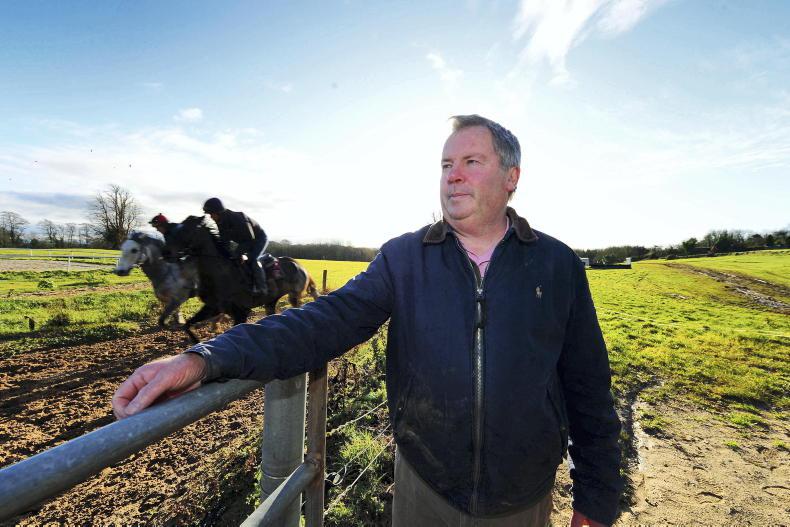

 This is a subscriber-only article
This is a subscriber-only article
 It looks like you're browsing in private mode
It looks like you're browsing in private mode




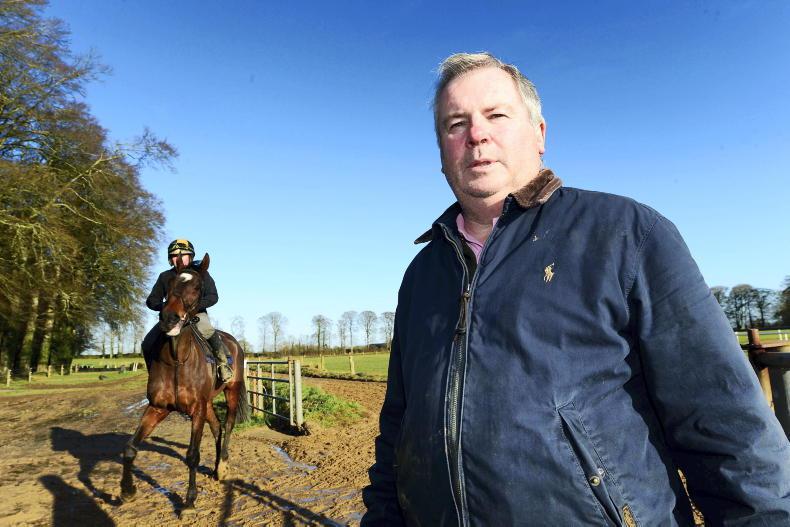
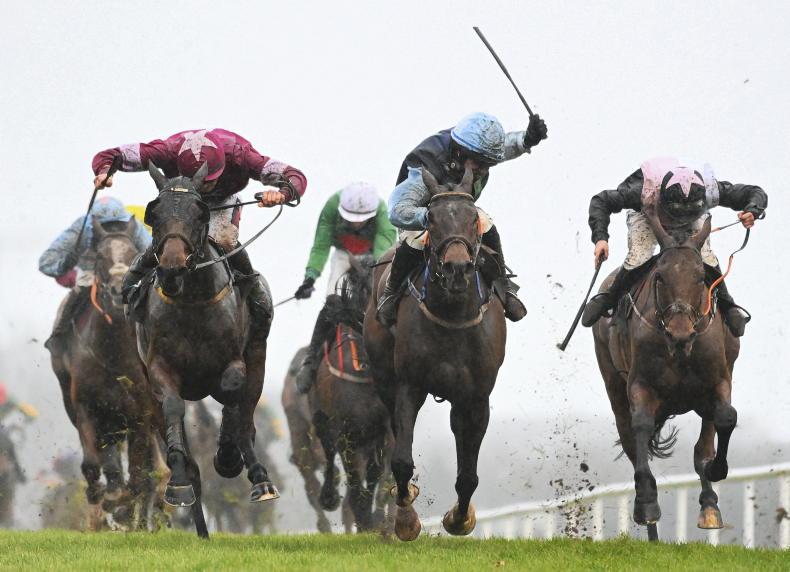
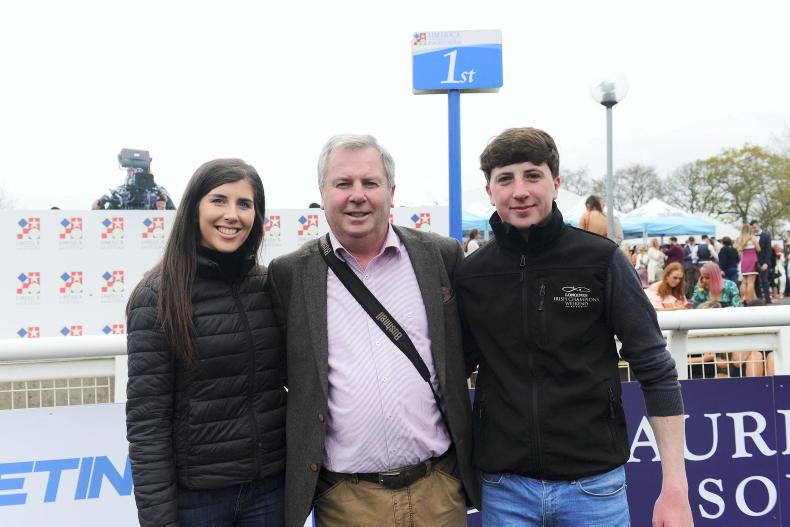
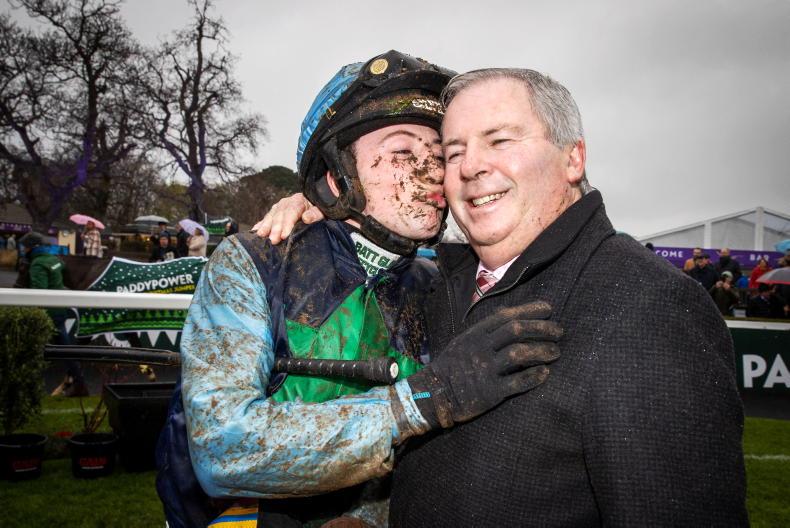

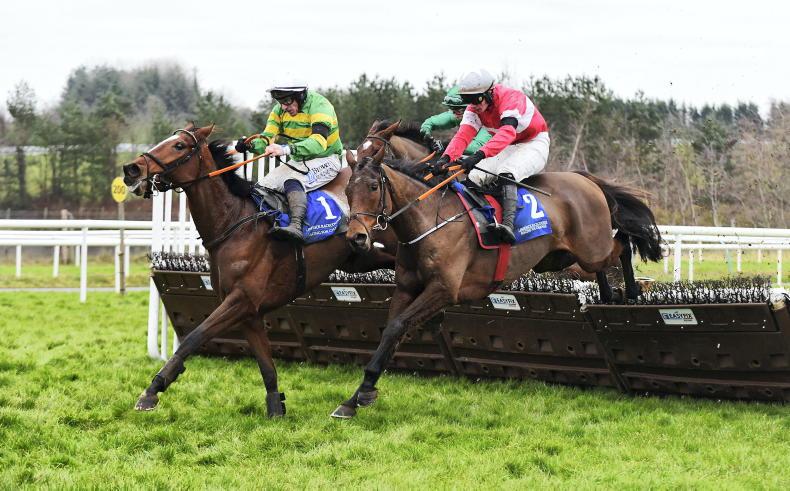

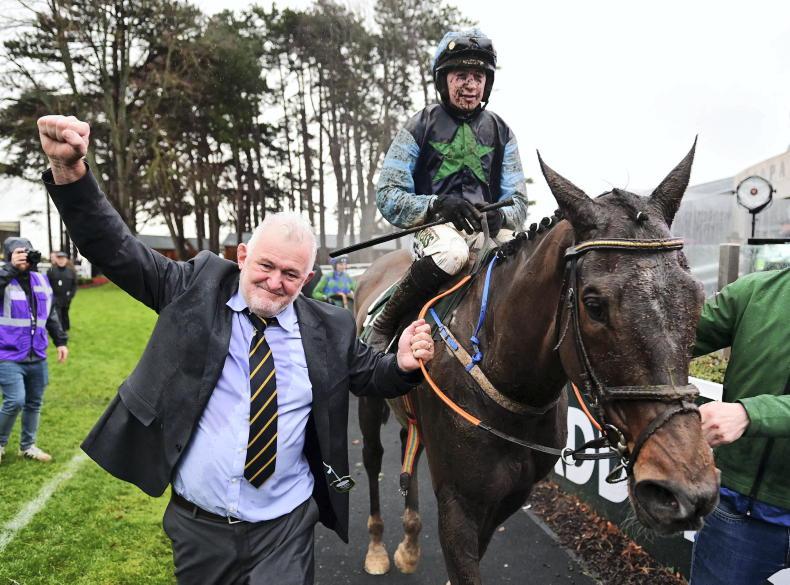
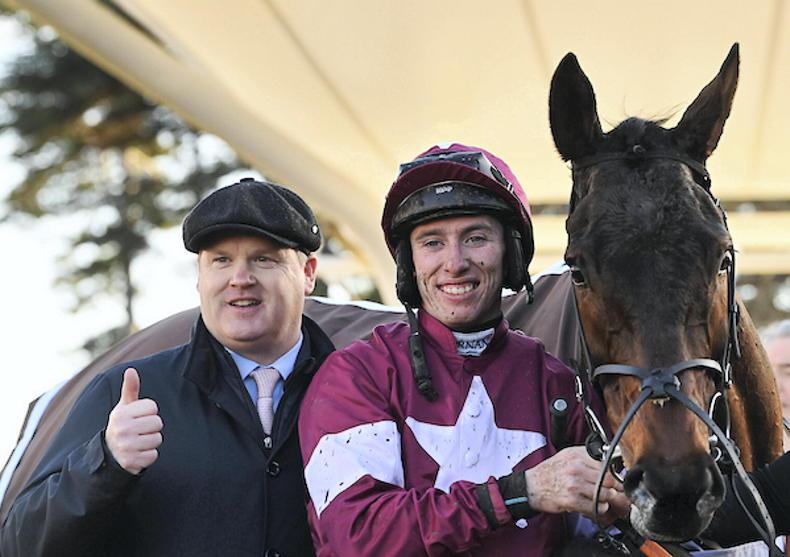
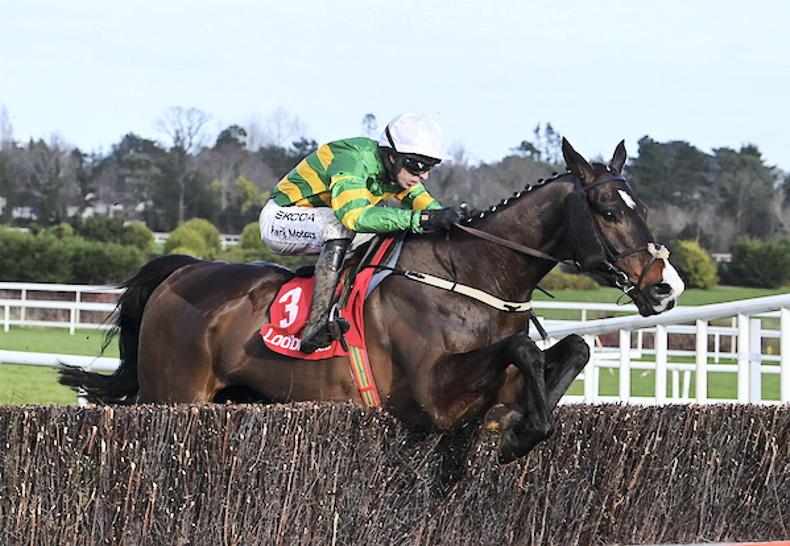
SHARING OPTIONS: